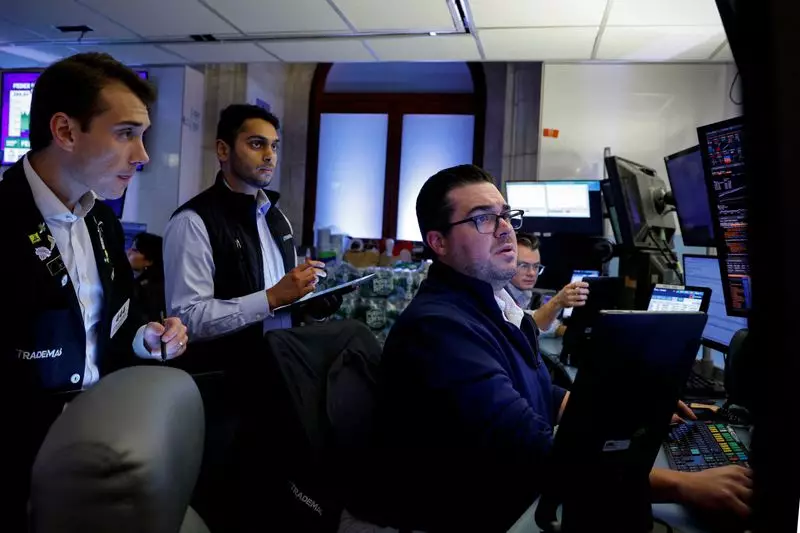The financial landscape remains turbulent as the U.S. stock index futures wavered on a Wednesday influenced by growing geopolitical unrest in the Middle East and disruptions in domestic operations, particularly a port strike. Investors are currently navigating a climate of uncertainty as they await crucial economic data that will potentially clarify the state of the economy and the trajectory of monetary policy.
The backdrop of geopolitical strife has cast a shadow over Wall Street as tensions escalate. The recent missile strikes exchanged between Iran and Israel have sown anxiety among investors, nudging them toward selling off riskier assets. The escalation from Iran in response to Israeli strikes on Lebanon raises concerns not only about localized conflict but also about the broader implications for international relations and global markets. The S&P 500 and Nasdaq indices have reached two-week lows in light of this development, instigating caution among market participants.
While the immediate repercussions of missile attacks are pronounced, analysts maintain a cautiously optimistic outlook. If Israel’s counteractions remain measured, there’s a possibility for de-escalation, which might stabilize the markets in the longer run. However, the volatility inherent in such situations keeps the markets on edge, making them susceptible to unpredictable shifts in investor confidence.
In early trading, key indexes showed signs of slipping. Dow E-minis dropped significantly, while the small-cap Russell 2000 index faced an even steeper decline. The CBOE Volatility Index—a measure of market anxiety—hovered near its three-week high, a telltale sign of investor trepidation. Contrarily, stocks in the oil sector like SLB and Occidental Petroleum have gained substantial ground as crude prices surged over 2.5%. This rise in oil prices indicates escalating fears of supply disruptions stemming from the crisis in the Middle East.
Defense and aerospace stocks, including Lockheed Martin and RTX, also saw an uptick amid these rising tensions, suggesting that investors are flocking towards sectors that may benefit from military conflict. The broader S&P 500 aerospace and defense index has reached record highs, underlining the complexities of market reactions in times of conflict.
On the domestic front, attention shifts to upcoming economic data, specifically the ADP National Employment report due later in the day. This report will provide vital insights into the labor market, which is instrumental in informing the Federal Reserve’s monetary policy decisions. With the Fed’s recent rate cut of 50 basis points aimed at invigorating job creation, the figures released could influence further actions by the central bank.
Market participants are acutely aware that the stakes are high this week, with non-farm payroll data set for release shortly. The evolving expectations around Federal Reserve policies, as indicated by the increase in odds for a smaller rate cut in November, reveal a market in transition. Investors are particularly attuned to these data points as they navigate the unpredictable landscape shaped by both domestic and international developments.
Adding to the complexity of this financial environment is a significant strike by dockworkers along the East and Gulf coasts. Early estimates suggest that the strike could cost the U.S. economy about $5 billion a day. This logistic disruption is particularly concerning as it coincides with rising oil prices, which could lead to increased inflationary pressures—an outcome that the Federal Reserve aims to manage.
Shares of major retailers such as Costco, Walmart, and others remained stable amid these concerns, as many had foreseen potential disruptions and adjusted their strategies accordingly. The interplay of these elements emphasizes the intricate relationship between international events and their domestic economic ramifications.
The current environment presents a formidable challenge for investors. Amid geopolitical tensions, economic uncertainties, and labor disputes, the path ahead remains unclear. As data begins to emerge and responses from policymakers are ignited, market sentiment will be closely scrutinized. The volatility of the stock market amidst these turbulent waters serves as a stark reminder of the intertwined nature of global events and their impact on economic stability. Investors must remain vigilant, adaptable, and informed to navigate this challenging landscape effectively.

